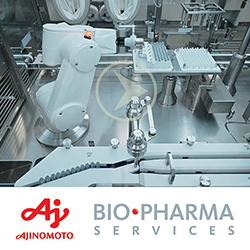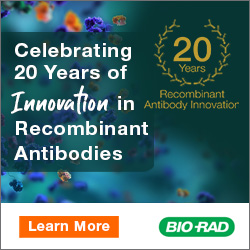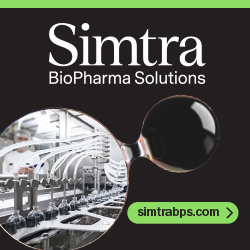Eisai & Biogen Announce Positive Topline Results
Eisai Co., Ltd. and Biogen Inc. recently announced positive topline results from the Phase II study with BAN2401, an anti-amyloid beta protofibril antibody, in 856 patients with early Alzheimer’s disease. The study achieved statistical significance on key predefined endpoints evaluating efficacy at 18 months on slowing progression in Alzheimer’s Disease Composite Score (ADCOMS) and on reduction of amyloid accumulated in the brain as measured using amyloid-PET (positron emission tomography).
Study 201 (ClinicalTrials.gov identifier NCT01767311) is a placebo-controlled, double-blind, parallel-group, randomized study in 856 patients with mild cognitive impairment (MCI) due to Alzheimer’s disease (AD) or mild Alzheimer’s dementia (collectively known as early Alzheimer’s disease) with confirmed amyloid pathology in the brain. Efficacy was evaluated at 18 months by predefined conventional statistics on ADCOMS, which combines items from the Alzheimer’s Disease Assessment Scale-cognitive subscale (ADAS-Cog), the Clinical Dementia Rating Sum of Boxes (CDR-SB) scale and the Mini-Mental State Examination (MMSE) to enable sensitive detection of changes in early AD symptoms. Patients were randomized to five dose regimens, 2.5 mg/kg biweekly, 5 mg/kg monthly, 5 mg/kg biweekly, 10 mg/kg monthly and 10 mg/kg biweekly, or placebo.
Topline results of the final analysis of the study demonstrated a statistically significant slowing of disease progression on the key clinical endpoint (ADCOMS) after 18 months of treatment in patients receiving the highest treatment dose (10 mg/kg biweekly) as compared to placebo. Results of amyloid PET analyses at 18 months, including reduction in amyloid PET standardized uptake value ratio (SUVR) and amyloid PET image visual read of subjects converting from positive to negative for amyloid in the brain, were also statistically significant at this dose. Dose-dependent changes from baseline were observed across the PET results and the clinical endpoints. Further, the highest treatment dose of BAN2401 began to show statistically significant clinical benefit as measured by ADCOMS as early as 6 months including at 12 months.
BAN2401 demonstrated an acceptable tolerability profile through 18 months of study drug administration. The most common treatment emergent adverse events were infusion-related reactions and Amyloid Related Imaging Abnormalities (ARIA). Infusion related reactions were mostly mild to moderate in severity. Incidence of ARIA-E (edema) was not more than 10% in any of the treatment arms, and less than 15% in patients with APOE4 at the highest dose per the study protocol safety and reporting procedures. Detailed results of the study will be presented at future academic conferences.
“The 18-month results of the BAN2401 trial are impressive and provide important support for the amyloid hypothesis,” said Jeff Cummings, MD, Founding Director, Cleveland Clinic Lou Ruvo Center for Brain Health. “I look forward to seeing the full data set shared with the broader Alzheimer’s community as we advance against this devastating disease.”
“This is the first late-stage anti-amyloid antibody study to successfully achieve statistically significant results at 18 months, further validating the amyloid hypothesis,” said Lynn Kramer, MD, Chief Clinical Officer and Chief Medical Officer, Neurology Business Group, Eisai. “We will discuss these very encouraging results with regulatory authorities to determine the best path forward. We continue to work towards the goal of delivering BAN2401 to patients and healthcare professionals as early as possible.”
“The prospect of being able to offer meaningful disease-modifying therapies to individuals suffering from this terrible disease is both exciting and humbling,” added Alfred Sandrock, MD, PhD, Executive Vice President and Chief Medical Officer at Biogen. “These BAN2401 18-month data offer important insights in the investigation of potential treatment options for patients with Alzheimer’s disease and underscores that neurodegenerative diseases may not be as intractable as they once seemed.”
As reported in December 2017, the study did not achieve its primary outcome measure, which was designed to enable a potentially more rapid entry into Phase III development based on Bayesian analysis at 12 months of treatment. Upon the final analysis at 18 months using predefined conventional statistical method, the study did demonstrate a statistically significant slowing of disease progression on the key clinical endpoint (ADCOMS) after 12 months of treatment in patients receiving the highest treatment dose (10 mg/kg biweekly) as compared to placebo.
This release discusses investigational uses of an agent in development and is not intended to convey conclusions about efficacy or safety. There is no guarantee that any investigational uses of such product will successfully complete clinical development or gain health authority approval.
BAN2401 is a humanized monoclonal antibody for Alzheimer’s disease that is the result of a strategic research alliance between Eisai and BioArctic. BAN2401 selectively binds to neutralize and eliminate soluble, toxic Aβ aggregates that are thought to contribute to the neurodegenerative process in Alzheimer’s disease. As such, BAN2401 may have the potential to have an effect on disease pathology and to slow down the progression of the disease. Eisai obtained the global rights to study, develop, manufacture and market BAN2401 for the treatment of Alzheimer’s disease pursuant to an agreement concluded with BioArctic in December 2007. In March 2014, Eisai and Biogen entered into a joint development and commercialization agreement for BAN2401 and the parties amended that agreement in October 2017.
Developed by Eisai, ADCOMS (AD Composite Score) combines items from the ADAS-Cog (Alzheimer’s Disease Assessment Scale-cognitive subscale), CDR-SB (Clinical Dementia Rating Sum of Boxes) and the MMSE (Mini-Mental State Examination) scales to enable a sensitive detection of changes in clinical functions of early AD symptoms and changes in memory. This Study 201 utilizes ADCOMS as its key endpoint for assessing clinical symptoms.
Amyloid PET (Positron Emission Tomography) imaging is a diagnostic method that enables the visualization of amyloid plaque present in the brain as well as the quantitative evaluation of amyloid plaque distribution and accumulation in the brain via administration of a minute amount of PET tracer, which specifically binds to amyloid plaque and marks it with positron. Amyloid PET imaging enables the assessment of pathology change and assistance of diagnosis of patients with Alzheimer’s-disease including MCI, and estimates the clinical effect of disease modifiers based on the amyloid hypothesis.
Eisai and Biogen are widely collaborating on the joint development and commercialization of Alzheimer’s disease treatments. Eisai serves as the lead in the co-development of elenbecestat, a BACE inhibitor, and BAN2401, an anti-amyloid beta (Aβ) protofibril antibody, while Biogen serves as the lead for co-development of aducanumab, Biogen’s investigational anti-amyloid beta (Aβ) antibody for patients with Alzheimer’s disease, and the companies plan to pursue marketing authorizations for the three compounds worldwide. If approved, the companies will also co-promote the products in major markets, such as the United States, the European Union and Japan.
As to BAN2401 and elenbecestat, both companies will equally split overall costs, including research and development expenses. Eisai will book all sales for elenbecestat and BAN2401 following marketing approval and launch, and profits will be equally shared between the companies.
Eisai Co., Ltd. is a leading global research and development-based pharmaceutical company headquartered in Japan. We define our corporate mission as “giving first thought to patients and their families and to increasing the benefits health care provides,” which we call our human health care (hhc) philosophy. With approximately 10,000 employees working across our global network of R&D facilities, manufacturing sites and marketing subsidiaries, we strive to realize our hhc philosophy by delivering innovative products to address unmet medical needs, with a particular focus in our strategic areas of Neurology and Oncology.
Leveraging the experience gained from the development and marketing of Aricept, a treatment for Alzheimer’s disease and dementia with Lewy bodies, Eisai has been working to establish a social environment that involves patients in each community in cooperation with various stakeholders including the government, healthcare professionals and care workers, and is estimated to have held over ten thousand dementia awareness events worldwide. As a pioneer in the field of dementia treatment, Eisai is striving to not only develop next generation treatments but also to develop diagnosis methods and provide solutions. For more information, visit www.eisai.com.
At Biogen, our mission is clear: we are pioneers in neuroscience. Biogen discovers, develops and delivers worldwide innovative therapies for people living with serious neurological and neurodegenerative diseases. One of the world’s first global biotechnology companies, Biogen was founded in 1978 by Charles Weissman, Heinz Schaller, Kenneth Murray and Nobel Prize winners Walter Gilbert and Phillip Sharp, and today has the leading portfolio of medicines to treat multiple sclerosis; has introduced the first and only approved treatment for spinal muscular atrophy; and is focused on advancing neuroscience research programs in Alzheimer’s disease and dementia, neuroimmunology, movement disorders, neuromuscular disorders, pain, ophthalmology, neuropsychiatry, and acute neurology. Biogen also manufactures and commercializes biosimilars of advanced biologics. For more information, visit www.biogen.com.
Total Page Views: 1157

















